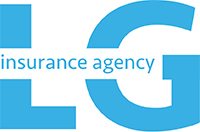Employment Practices Liability Insurance: How It Protects You & Your Business
In today’s economic climate, business owners have many things to take into consideration when protecting their business and investment. With only a brief review of news headlines over the past few years, you’re certain to come across stories of companies large and small that were embroiled in scandal thanks to claims of workplace harassment, sexually inappropriate behavior, or discrimination. Though the focus in those news stories was on the person being accused, those businesses suffered the legal ramifications as well. There has also been a drastic increase in ADA Title III lawsuits filed in federal court in recent years, with cases more than tripling between 2013-2018 alone. Between the increase in social awareness of hostile work environments or unwanted advances, and ADA regulations being more closely monitored and enforced than ever, there are many risk factors that can slip through the cracks until you have a devastating lawsuit on your hands.
Are You Sure You and Your Business are Covered?
Employment Practices Liability Insurance, or EPLI, is a type of liability insurance that covers what can be described as wrongful acts that can occur during the employment process. The most common reasons for needing an EPLI policy are related to wrongful termination, sexual harassment, discrimination, and retaliation. When small business owners purchase an insurance policy, they often believe that it means they are covered in the event of any situation, can be incorrect. We believe in most cases the best way to guarantee the best protection is a seperate EPLI policy, which will include more coverage, broader coverage, and better limits of coverage.
Is My Business Really at Risk?
Any business with any number of employees should have policies and coverage in place to protect themselves both from applicants and their own employees in the event that there is a claim made against them. However, certain types of businesses and industries are at higher risk for claims. Hospitality, for example, is extremely high risk. Construction is another area that has a high risk for EPLI claims. Professional offices have several risk factors as well. Essentially, all businesses run the risk of incurring claims, especially as workplace culture has shifted. Claims and EPLI risks are more prevalent in the recent climate, and companies need to take the necessary precautions.
Unfortunately, many business owners either assume that their policy includes protections or do not believe that purchasing an EPLI policy is necessary until it is too late. Assuming you have coverage can prove to be an expensive mistake. Many business owners policies can include pages and pages of things that are not covered, and only a few detailing the actual coverage, and few business owners actually read through the entire policy. In the event that you or your company are sued for a federal discrimination or harassment policy violation and you have no EPLI policy in place, purchasing a policy after the fact will not cover those potential damages. It’s much like calling a home insurance agent after the house is already on fire.
Many business owners may simply believe that the risk of being sued for a discrimination claim are too low to need a policy. This can prove to be a very costly mistake. Employers may choose to terminate an employee for what they see as completely valid reasons, only to find themselves facing a wrongful termination suit. Claims can also be made based on a third party- perhaps a delivery driver or independent contractor working with the business but not employed by them directly makes an unwanted sexual advance on an employee, which they can then sue the business owner for, claiming a hostile work environment. Additionally, there are the risks of ADA, or Americans with Disabilities Act, third party claims. These claims don’t only apply to physical building accomodations – websites are subject to the same laws. Thinking your business is “safe” because you are primarily online, or are not the landlord of your physical space could cost you tens of thousands of dollars. In these cases, legal defense costs and the time lost in court or dealing with the EEOC fall on the business owner themselves without a policy in place to protect them.
If My Business is Sued for Workplace Harassment, What Does EPLI Cover?
When there is an issue with perceived discrimination in your company and you are sued, one of two things will happen. You may get a notice from the EEOC, or Equal Opportunity Employment Commission, or you will get served a notice from a personal lawyer seeking damages. The EEOC investigates charges of discrimination brought against employers and enforces federal laws regarding discrimination against someone based on their race, religion, sex, (including pregnancy), genetic information, national origin, age, or disability. There are also laws regarding discrimination against someone due to their previous history of discrimation cases- including having filed a charge of discrimination, complaining about discrimination, or having participated in a previous discrimination suit. After investigating the claim, the EEOC will seek monetary damages, both in the form of punitive damages and compensation. With EEOC claims, companies can be investigated on the whole, due to their employees or management that engage in harassment or discrimination, and even independent contractors that the business is working with. In all of these scenarios, the business itself is held liable. Whether the battle is with the EEOC or in court, the company is responsible for their own defense against the allegations. This can quickly lead to astronomical legal bills, and in some cases can completely destroy a business.
In the event that the worst case scenario occurs and you do in fact have an EPLI policy, it will deal with the potential legal costs associated with the suit in question. Third Party Liability coverage, which is often included in EPLI policies, will extend to suits brought by non-employees against employees. This can be clients, customers, vendors, delivery drivers, or anyone in the general public that interacts with your business. EPLI protects against suits for wrongful termination, failure to promote, discrimination, ADA violations and many other forms of workplace related forms of first or third party claims.
Does EPLI Make Sense in Today’s Climate?
The short answer? Absolutely.
Statistics show that most companies are more likely to face an employment-related claim than a general liability claim or property claim. This means you are more likely to be sued by an employee than someone who slips and falls in your business. We all assume that we need property and liability insurance, so why are we assuming that we may not need EPLI? According to the EEOC website, 72,675 charges of workplace discrimination were received in 2019 alone. A quick glance at their newsroom page reveals headlines about dozens of companies settling huge claims for sexual harassment, retaliation, failure to promote, discrimination, and the list goes on.
The business landscape is constantly evolving. In today’s climate, more than ever, having EPLI protection is paramount. We are now handling transactions in many new ways, and for every new interaction there is a new risk for someone to feel uncomfortable or discriminated against. The only way to be certain that you and your company are protected is to make the choice to have an EPLI policy before something happens and protect your time and resources, along with your business.


